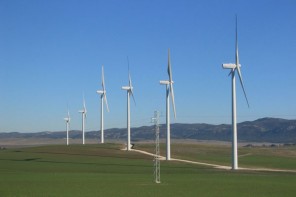Written by: Wilma den Hartigh
Solms-Delta wine farm, near the village of Franschhoek in the Cape Winelands Region, is leading transformation in the wine industry through its farmworker empowerment programmes.
Its approach to nation-building, transformation and development of farmworkers and their families has earned Solms-Delta the reputation of being one of the country´s most progressive wine estates.
When South African-born Mark Solms – a world-renowned neuropsychologist, co-founder of Solms-Delta and driving force behind the worker empowerment trusts – assumed custodianship of the estate, his dream was to achieve more than just re-establishing its vineyards and cellars.
His vision was to bring about real change for the residents of Solms-Delta and confront the social and economic problems in South Africa´s farming sector, starting with understanding the history of the 320-year old estate.
The story of Solms-Delta is typical of so many of the farms in the area.
“This farm was established by slave labour and the descendants of those slaves are still living here. This is what Solms-Delta is all about,” he says, adding that when he came back to South Africa after working overseas, he wanted to contribute to the redevelopment of the country.
A partnership between Mark Solms and British philanthropist, Richard Astor, led to the implementation of a unique approach to deal with the social realities of South African agriculture.
Two trusts were established to support the development of the estate´s historically disadvantaged residents and employees.
The Wijn de Caab Trust
The goal of the Wijn de Caab Trust is to break the legacy of poverty and dependency. Improved quality of life and education were identified as the best ways to achieve this.
“The single biggest investment is in education for the next generation,” Solms says.
The trust offers financial support for primary, secondary and tertiary education, as well as an adult education programme. Having access to quality education is a key priority for the founders of the trust.
“The vast majority of children at Solms-Delta attend fee-paying schools that can give them the sort of education that I would have taken for granted as a child, he says.
Craig MacGillivray, CEO of Solms-Delta, says that their goal is for children to receive education that will help them create a future outside the farm.
The Kleinhandjies (Afrikaans for little hands) crèche provides children with a nurturing environment in which they are prepared for primary school. Seven qualified teachers from the area teach at the school. In the afternoon, school-going children receive additional educational support at the after-care centre.
The trust also provides bursary support for children who want to pursue tertiary education.
High-quality medical care is another important service of the trust and all the programmes are overseen by a full-time social worker.
MacGillivray says that Alcohol Foetal Syndrome (AFS), which is a widespread problem in the wine industry, is one of their biggest challenges. The trust also caters for the needs of children born with AFS by providing them with remedial support.
Housing benefits also form part of the trust. Profits from wine sales have been used to build and refurbish comfortable homes for all residents on the farm and to create recreational facilities.
The founders of Solms-Delta wanted to ensure that every employee has an interest in making the farm a success. To this end, the Wijn de Caab Trust grants residents and employees an equal, one-third, share in Solms-Delta.
The Delta Trust
In 2007 the Astor and Solms families established the Delta Trust to continue the process of nation-building and transformation through educational, cultural, sport and social programmes.
One of the goals of the trust is to develop local music talent and draw attention to the rich musical heritage of the rural Western Cape. The project is also proving to be a form of social therapy in the community.
With financial support of the trust, ongoing research into the Cape´s musical heritage has been made possible.
Adriaan Brand, trumpeter of the well-known band Springbok Nude Girls, manages the Music van de Caab Project. “Music has become a huge part of Solms-Delta. There is a wonderful rich tapestry of music styles that emerged from the Cape and the project has really changed people´s lives in ways I would have never dreamt,” Solms says.
As an unintended consequence of the project, various traditional music ensembles have also developed in the area.
Preserving the past
In addition to transforming the lives of the Solms-Delta farmworker community, the founders of the estate also wanted to preserve the history of the farm for future generations.
“One thing we did on this farm was face up to its history,” Solms says.
The Museum van de Caab, housed in the original wine cellar on the farm which dates back to 1740, is part of the renewal project at Solms-Delta. The aim of establishing the museum was not only to remember history, but also to change it.
Tracey Randle, Solms-Delta´s resident historian, says that the emphasis of the museum project is to tell the story of the farm through the voices of individual people.
“History is about ordinary people and uncovering the story of the farm and the people who lived here is what the museum is all about,” Randle says.
It honours the farm´s slave heritage through moving displays and personal stories of the people who lived on the farm many years ago.
The museum contextualises the story of the farm in relation to the history of South Africa. It covers the history of the estate, both chronologically and thematically, starting with the early human settlers on the farm, the pre-colonial pastoral usage of the land, the establishment of private ownership through colonial viticulture, slavery and apartheid and the establishment of democracy in South Africa.
Uncovering the story of Solms-Delta was a complex process. Randle spent many hours exploring the national archives in Cape Town, which are the oldest in the country dating back 350 years.
Archaeological excavations on the farm were also undertaken and it yielded fascinating discoveries of a Later Stone Age settlement site and foundations of a 1680s hunting lodge, one of the oldest buildings in the Western Cape.
They also found many stone tools, artefacts and pieces of Chinese and Japanese porcelain, which are now housed in the museum.
Sincere effort
“The challenge of managing a trust of this nature is to show people that we are sincere about what we are doing,” says Charlotte van Zyl, administrator of the Wijn de Caab and Delta Trusts.
“We are using this farm to fix this little piece of South Africa,” Solms said.



